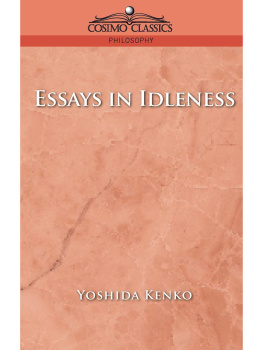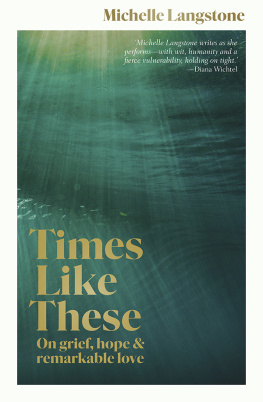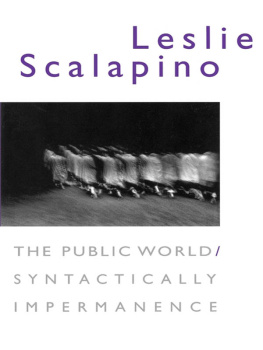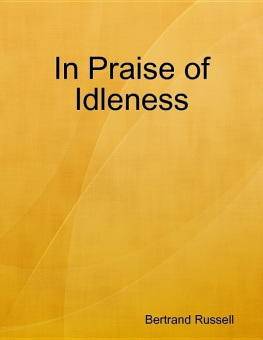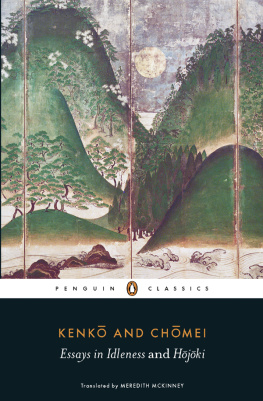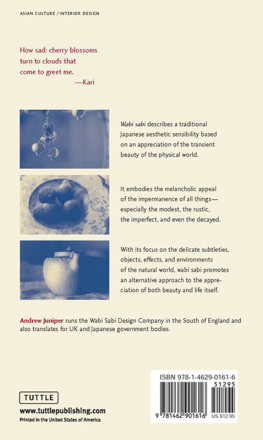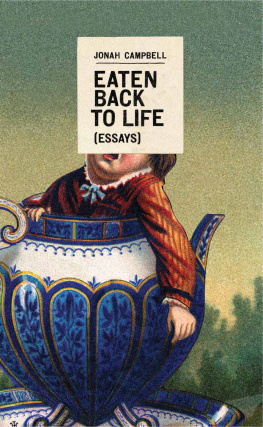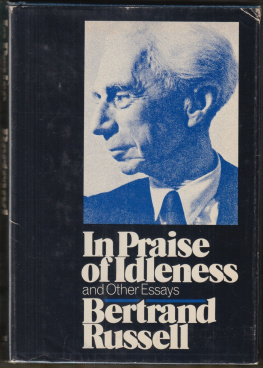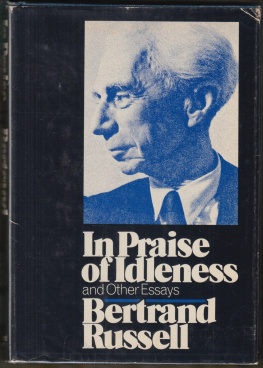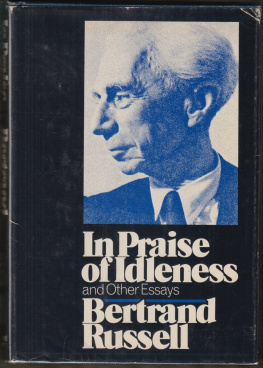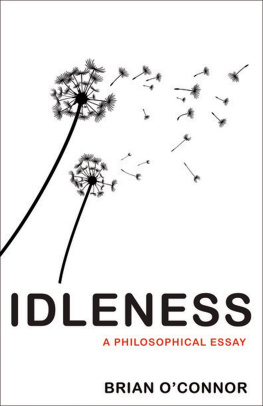All rights reserved. No part of this book may be used or reproduced in any manner whatsoever without prior written permission except in the case of brief quotations embodied in critical articles or reviews.
The Tsurezure Gusa of
Yoshida Kenk
To while away the idle hours, seated the livelong day before the ink-slab, by jotting down without order or purpose whatever trifling thoughts pass through my mind, verily this is a queer and crazy thing to do!
1. Lo! To those that are born into this world many indeed are the desirable things.
Exceedingly worshipful is the majesty of the emperor. The youngest leaves of the bamboo garden are not of the seed of men, and such as they are out of reach of all human desires. Lofty the estate of the prime minister beyond all dispute, and those of such station as to have a retinue from the court are of great splendour, while their children and their grandchildren, though their fortunes be decayed, still preserve some of the grandeur of their forbears.
But in all ranks of life beneath these, though a man may rise and prosper and show a boastful front, nevertheless, fine as he may think himself, it is forsooth but a sorry thing he has achieved.
No lot is so little envied as a priests. Sei Shonagon wrote, They are looked upon as so many bits of stick, and truly this is so. Nor is a priest admired who is forceful and turbulent, for men feel, in the words of the sage Zoga, that thirst for fame means disregard of Buddhas law.
There is indeed none but the complete hermit who leads a desirable life.
What men chiefly covet is outward excellence, of figure and of bearing. They seek and are not wearied by the company of one who has a pleasing manner of speech, talking with charm but not garrulity. Yet how it pains one to see revealed in a man a base nature that belies a fair exterior. Beauty and rank, indeed, are such as we are born with: but, for the mindif a man strives to copy the sages, shall he not succeed and grow from wisdom unto greater wisdom? And if he lacks wisdom, then, though his form be fair and his heart good, he feels outshone and ill at ease in the company of others, even of low degree and unpleasing aspect.
It is desirable to have knowledge of true literature, of com position and versifying, of wind and string instruments; and it is well, moreover, to be learned in precedent and court ceremonies, so as to be a model for others. One should write not unskillfully in the running hand, be able to sing in a pleasing voice and keep good time to music; and, lastly, a man should not refuse a little wine when pressed upon him.
2. Wanton and heedless must one hold those who, forgetting this benevolent rule of the great ones of old, reckless of the peoples sorrow and the countrys harm, delight to exhaust all forms of luxury, and live withal cramped by their own magnificence. In Lord Kujs admonitions to his descendants it is written, From your headdress and your garments to your horse and your carriage, be content with what you have, and do not seek for elegance and splendour. So, in his august writings on palace affairs, Emperor Juntoku says, In all things for the emperors use plainness is desirable.
3. However gifted and accomplished a young man may be, if he has no fondness for women, one has a feeling of something lacking, as of a precious wine cup without a bottom. Admire the condition of a lover! Drenched with dews and frosts and aimlessly wandering, ever concerned to shun the worlds reproof and escape his parents reproaches, hither and thither pursued by doubt and distressand spending his nights withal sleepless upon a solitary couch.
But it is well that a man do not become addicted to lewdness, a constant and familiar companion of women.
4 Happy is the man who, mindful of the afterlife, is diligent in the way of Buddha.
5. Not he who, plunged in grief at his misfortunes, takes the tonsure because he holds the world harsh and evil, but rather he who shuts himself off completely and lives day in, day out, expecting nothing, demanding nothingthis is the true hermit.
Well may one feel, as the Chnagon Akimoto said, O! To look on the moon guiltless in exile.
6. Even for the great, to say nothing of the lowly, it is well to be childless. The prince imperial first minister of the middle Kaneakira, the prime minister Kjo and the minister of the left Hanazono all held it a good thing to be without posterity. Well was it too that the minister of Somedono was without offspring; and it is written in the Yotsugi no okina no monogatari that it is an evil thing when a mans descendants fall behind him. Indeed, it is related that Prince Sh toku, when he caused his own tomb to be built, cut off and stopped up the paths thereto, because he meant to leave no offspring.
7. Were we to live on foreverwere the dews of Adashino never to vanish, the smoke on Toribeyama never to fade away then indeed would men not feel the pity of things.
Truly the beauty of life is its uncertainty. Of all living things, none lives so long as man. Consider how the ephemera awaits the fall of evening, and the summer cicada knows neither spring nor autumn. Even a year of life lived peacefully seems long and happy beyond compare; but for such as never weary of this world and are loth to die, a thousand years would pass away like the dream of a single night.
What shall it avail a man to drag out till he becomes decrepit and unsightly a life which some day needs must end. Long life brings many shames. At most before his fortieth year is full it is seemly for a man to die.
After that age it is pitiful to see how, unashamed of his looks, he loves to thrust himself into the society of others, and cherishing his offspring in the evening of his days, craves to live on and on that he may watch them grow and prosper. So he continues, his heart set on naught but worldliness, and hardening to the pity of things.
8. Of all things that lead astray the heart of man there is naught like fleshly lust. What a weakly thing is this heart of ours. Though a perfume, for example, is but a transient thing, and though he knows full well that incense is burned to give an odour to garments, yet a mans heart will always be stirred by a vague perfume. The magician of Kume, the legend runs, lost his magic power through looking at the white shins of a maiden washing clothes. This may well have been, for here was no charm from without, but the real beauty of plump and glistening limbs.
9. What strikes man most in a woman is the beauty of her hair, and from her manner of speech you may tell her quality and her disposition, though she be hidden from view.
Even to look on her as she goes about her business will sometimes lead the heart astrayfor she will sleep in uneasy postures, spare no bodily pain and bear with patience unbearable discomforts, all because her mind is set on love.
Verily the roots of passion are deep, and remote its sources. Though the lusts and appetites of the six defilers are many, yet may they all be banished save this one alone. It can hardly be uprooted, and young and old, wise and foolish are alike its slaves.

